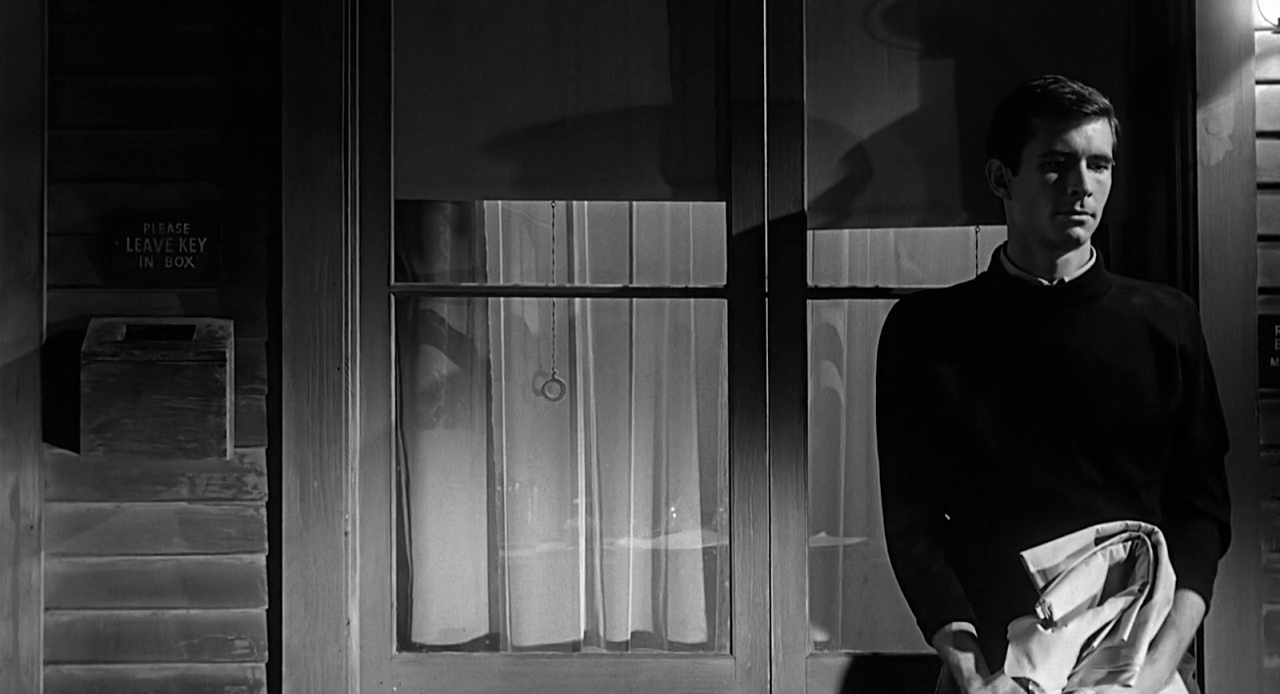Jean: Are you bored?
Juliette: Oh, no.
Jean: Don't worry. There'll be places to see.
Juliette: Riverbanks.L'Atalante (Jean Vigo, 1934)
Dec
16
on a river
.gif)
Juliette (Dita Parlo) in her bridal dress walks the cover of her husband's river barge L'Atalante. A steam barge putputs by (via). DP: Boris Kaufman.
Set on a river*
* the Bales 2025 Film Challenge for December has a few dateless themes. This is one of them.
“A geisha’s lie is not a real lie. It’s a cornerstone of our profession.” 祇園囃子 [Gion bayashi / Gion Festival Music] (Kenji Mizoguchi, 1953)
Dec
15
茶
.jpg)
Studying the tea ceremony, accompanied by director Mizoguchi (via). DP: Kazuo Miyagawa.
Having tea*
– Miyoharu
* the Bales 2025 Film Challenge for December has a few dateless themes. This is one of them.
“At 10 PM, in what will be the last broadcast, Fact or Fiction goes live.”The Last Broadcast (Stefan Avalos + Lance Weiler, 1998)
Dec
15
1995
.jpg)
An anxious looking camera man in the woods on grainy VHS stock. DP: Lance Weiler.
– David Leigh, the filmmaker
“I regard [Govindan] Aravindan as one of the most poetic filmmakers in the world. He is a poet who writes in the language of cinema and silence. Watching his films is like a meditative experience.”കുമ്മാട്ടി [Kummatty / Bogeyman] (Govindan Aravindan, 1979)
Dec
14
Perumthitta Tharavad
.jpg)
Kummatty (performed by Ramunni) dances with the children. They wear the animals masks he carries around with him (via). DP: Shaji N. Karun.
Perumthitta Tharavad: based on a folk tale.
– Shivendra Singh Dungarpur, Film Heritage Foundation (source)
Set during the Hindu rice harvest festival Onam, Kummatty tells the story of the seasons through the eyes of a mischievous boy. After teasing the temple guard – possibly Thamma – she warns the boy and his friends about the arrival of Kummatti (here unfortunately translated as the bogeyman but actually the name of a performer of a mask dance called Kummatti Kali). As faith wants it, Kummatti does arrive and accompanies the children in song and dance while the seasons change, rice is ready for harvest, and characters shift. To a certain extent, there's an interesting parallel with Frank Perry's Ladybug Ladybug (1963).
“Kneel before her son. I've had a dream. She's the incarnation of the Goddess, Kali.”দেবী [Devi / The Goddess] (Satyajit Ray, 1960)
Dec
13
Saint Lucy's Day
.jpg)
Doyamoyee, Kali incarnate (via). DP: Subrata Mitra.
Saint Lucy's Day: wearing a garland. Today's and yesterday's theme are virtually interchangeable.
– Kalikinkar Roy
Doyamoyee's father-in-law, and worshipper of Kali, has a dream. The young woman is the goddess' avatar. Locals come to visit the house, and Doyamoyee too starts believing in her divinity.
Hanoi, martes 13 [Hanoi, Tuesday 13th] (Santiago Álvarez, 1968)
Dec
13
Tue

A collage image of President Lyndon B. Johnson. His face is a hole and footage of a military burial service can be seen. DP: Iván Nápoles.
The Baby of Mâcon (Peter Greenaway, 1993)
Dec
12
Dīpāvalī
.png)
The miraculous child (Nils Dorando) surrounded by candles. DP: Sacha Vierny.
Candles for Diwali*. Today's and tomorrow's theme are virtually interchangeable.
When an old crone gives birth to a beautiful baby, a young virgin claims the child as hers. With the Immaculately Conceived wonder put on display – to the child's contemporaries, the court of Cosimo de' Medici attending a reenactment of the events, and us film viewers – He protects the false Virgin from losing her chastity and blurs the walls between staging and gospel.
* “Diwali, one of the major religious festivals in Hinduism, Jainism, and Sikhism, lasting for five days from the 13th day of the dark half of the lunar month Ashvina to the second day of the light half of the lunar month Karttika. The corresponding dates in the Gregorian calendar usually fall in late October and November.” (source).
Balada o trobenti in oblaku [Ballad About a Trumpet and a Cloud] (France Štiglic, 1961)
Dec
11
International Mountain Day
.jpg)
A young couple dances among the mountains (via). DP: Rudi Vaupotič.
Set in the mountains for International Mountain Day
1943. With the family preparing for Christmas, old man Temnikar hears the sound of a trumpet. The patriarch sees it as his calling to follow – and kill – the White Guardists who visited his mountain farm looking for wounded Partisans.
Gina [Stone Cold Revenge] (Denys Arcand, 1975)
Dec
11
1952

Gina (Céline Lomez) stripping in front of a silver tinsel curtain. The silhouette of a woman is visible in the foreground. DP: Alain Dostie.
“The mattress is soft and there're hangers in the closet and stationary with “Bates' Motel” printed on it in case you want to make your friends back home envious.”Psycho (Alfred Hitchcock, 1960)
Dec
11

Norman Bates (Anthony Perkins) in front of the family motel. DP: John L. Russell.
– Norman Bates